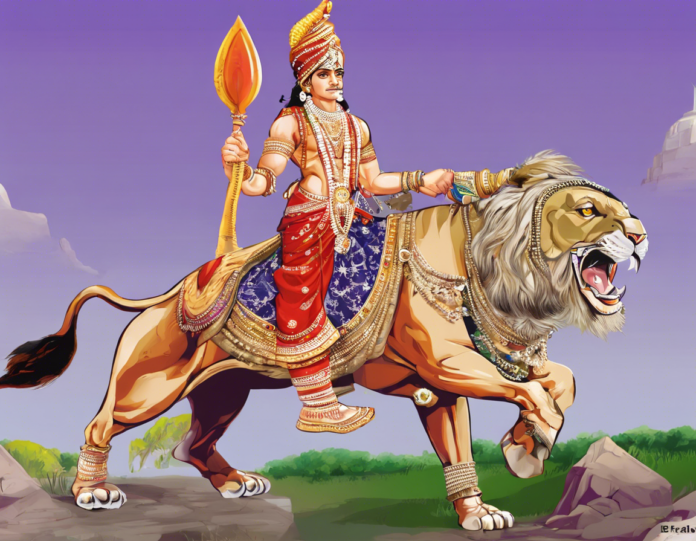Introduction
Akhand Bharat is a term that holds significant historical, political, and emotional weight in the Indian subcontinent. The term literally translates to “Undivided India” and signifies a vision of a unified Indian nation comprising present-day India, Pakistan, Bangladesh, Nepal, Bhutan, and parts of Afghanistan, Iran, and Myanmar. The concept of Akhand Bharat has been a subject of debate and discussion for decades, especially in the context of the partition of India in 1947. To understand the concept of Akhand Bharat better, it is essential to delve into its historical roots, the political implications, and the varying perspectives associated with it.
Historical Roots of Akhand Bharat
The concept of Akhand Bharat traces its origins back to ancient Indian scriptures and texts that envisioned a vast landmass encompassing what is now known as the Indian subcontinent. In Hindu mythology, the notion of “Akhand Bharat” is linked to the idea of “Aryavarta,” the land of the Aryans, which was believed to stretch from the Himalayas to the Indian Ocean. This historical idea of a united India resonates with the cultural, spiritual, and civilizational unity that has prevailed in the region for centuries.
During the Mauryan Empire under Emperor Ashoka, the Indian subcontinent witnessed a period of political unity and territorial expansion, with the Mauryan Empire encompassing a vast territory that closely aligns with the concept of Akhand Bharat. The spread of Buddhism during this period further reinforced the cultural connections among various regions of the subcontinent.
The Mughal Empire, under the rule of Emperors like Akbar and Aurangzeb, also significantly impacted the territorial boundaries of the Indian subcontinent, fostering a sense of unity among diverse cultures and communities. The idea of Akhand Bharat, therefore, has deep historical roots that reflect the region’s shared heritage and interconnected past.
Partition of India and the Idea of Akhand Bharat
The partition of India in 1947, following independence from British colonial rule, marked a significant turning point in the region’s history and had a profound impact on the concept of Akhand Bharat. The partition led to the creation of two separate nations, India and Pakistan, based on religious lines, with East Pakistan later becoming Bangladesh after the 1971 Liberation War.
For proponents of Akhand Bharat, the partition was a traumatic event that divided territories, disrupted communities, and created lasting wounds that are felt to this day. The idea of a geographically unified India, as envisioned in the concept of Akhand Bharat, was shattered, giving way to separate national identities and boundaries.
Political Implications of Akhand Bharat
The concept of Akhand Bharat has not only cultural and historical connotations but also holds political significance in the contemporary context. Various political groups, organizations, and individuals have championed the idea of reunifying the Indian subcontinent under the banner of Akhand Bharat, citing historical, cultural, and strategic reasons.
Hindutva organizations like the Rashtriya Swayamsevak Sangh (RSS) and its affiliates, including the Bharatiya Janata Party (BJP), have often invoked the concept of Akhand Bharat to promote a vision of a strong, united India that reflects a Hindu cultural ethos. For these groups, Akhand Bharat symbolizes the reclaiming of a lost legacy and the restoration of a perceived golden age of Indian civilization.
On the other hand, critics of the Akhand Bharat ideology argue that it ignores the complex realities of modern geopolitics, ethno-religious diversity, and the right to self-determination of different nations. The scars of partition, the ongoing conflicts in Kashmir, and the geopolitical tensions in the region pose significant challenges to the practical realization of the Akhand Bharat vision.
Regional Perspectives on Akhand Bharat
The concept of Akhand Bharat elicits diverse reactions and interpretations across the Indian subcontinent. In India, there are voices that advocate for a reunification of the region under the Akhand Bharat banner, viewing it as a natural culmination of historical, cultural, and civilizational connections.
In Pakistan, however, the idea of Akhand Bharat is often seen with suspicion and apprehension, given the historical animosities and conflicts that have defined the relationship between the two nations. The partition of India and the subsequent wars and disputes have created deep-seated mistrust that complicates any discussion of reunification.
Bangladesh and Nepal, as independent nations with their own distinct identities, are also wary of any attempts to resurrect the concept of Akhand Bharat, as it may challenge their sovereignty and autonomy. These nations prefer to maintain bilateral relations based on mutual respect and cooperation without being drawn into historical narratives that could reopen old wounds.
The Way Forward: Reconciliation and Cooperation
While the concept of Akhand Bharat may hold emotional appeal for some and historical significance for others, the practicality of its implementation remains a contentious issue. In a rapidly changing global landscape marked by economic interdependence, security challenges, and the need for regional stability, fostering reconciliation and cooperation among the nations of the Indian subcontinent is paramount.
Instead of dwelling on past grievances or clinging to utopian visions of reunification, a pragmatic approach that emphasizes dialogue, confidence-building measures, and people-to-people exchanges can pave the way for greater regional integration and harmony. Addressing shared challenges such as poverty, climate change, terrorism, and extremism requires collective action and a forward-looking mindset that transcends historical divisions.
Conclusion
The concept of Akhand Bharat embodies a vision of unity, cultural continuity, and historical interconnectedness that has shaped the Indian subcontinent for millennia. While the dream of a geographically united India may remain elusive in the present geopolitical scenario, the values of tolerance, pluralism, and cooperation that underpin the concept of Akhand Bharat can guide the nations of the region towards a future of peace, prosperity, and mutual respect.
FAQs
1. What is the historical significance of Akhand Bharat?
Akhand Bharat has its roots in ancient Indian scriptures and texts that envision a united Indian subcontinent. It reflects the cultural, spiritual, and civilizational unity that has prevailed in the region for centuries.
2. How did the partition of India impact the concept of Akhand Bharat?
The partition of India in 1947 led to the creation of separate nations, India and Pakistan, based on religious lines, thereby shattering the idea of a geographically unified India as envisioned in Akhand Bharat.
3. What are some of the political implications of Akhand Bharat?
Akhand Bharat holds political significance, with various groups advocating for the reunification of the Indian subcontinent under this concept. Hindutva organizations in India often invoke Akhand Bharat to promote a vision of a strong, united India.
4. How do regional perspectives differ on Akhand Bharat?
While some in India view Akhand Bharat as a natural culmination of historical connections, nations like Pakistan, Bangladesh, and Nepal are wary of any attempts to resurrect the concept, preferring to maintain their sovereignty and autonomy.
5. What is the way forward regarding the concept of Akhand Bharat?
Fostering reconciliation, cooperation, and dialogue among the nations of the Indian subcontinent is essential for greater regional integration. Emphasizing shared challenges and a forward-looking mindset can pave the way for peace and prosperity in the region.


